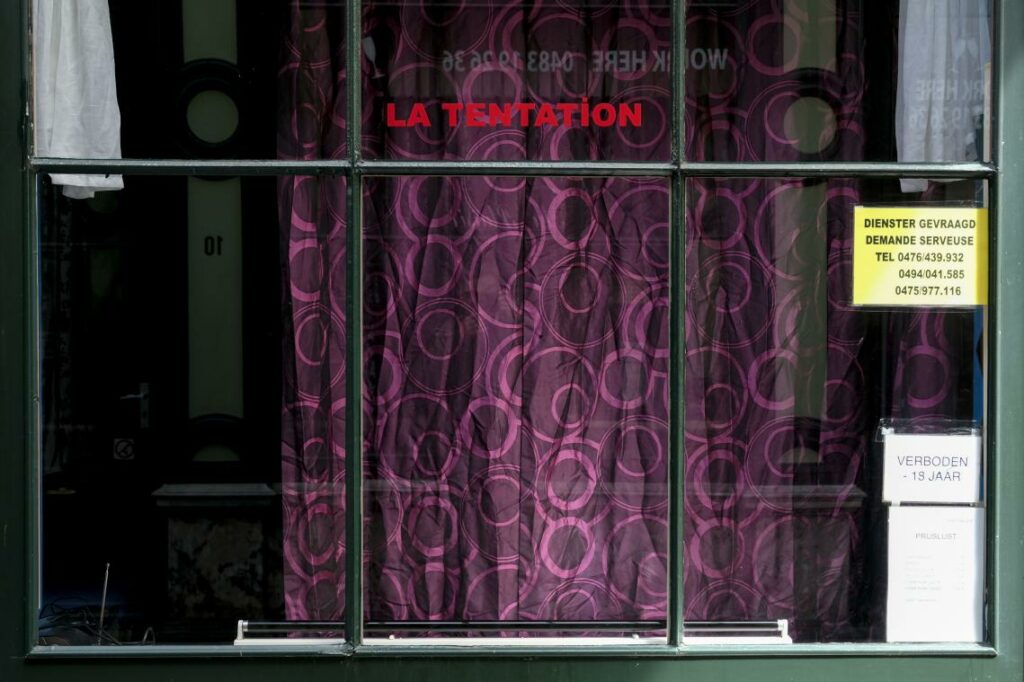As the Federal Parliament approved the new sexual penal code on Thursday evening, Belgium is now the first country in Europe to officially decriminalise sex work. The country is now removing sex work from its penal code.
After the Justice Committee approved Justice Minister Vincent Van Quickenborne’s proposal in February, the Federal Parliament has now also officially voted in favour of the bill. This means that sex work has finally been decriminalised and workers are given social rights, his cabinet announced.
"In terms of sex work, this is a historic reform," Van Quickenborne said in a press release. "It ensures that sex workers are no longer stigmatised, exploited and made dependent on others. Belgium is the first country in Europe to decriminalise sex work. It confirms our nation's ethically progressive reputation."
Outside of Europe, New Zealand is the only country that did this before Belgium.
The new sexual criminal law will enter into force three months after its publication in the Belgian Official Journal. This publication will happen "as soon as possible" and "should not take long," his cabinet confirmed to The Brussels Times.
Related News
- 'Crucial leap forward': Belgium to decriminalise sex work
- Why Belgium is regulating sex work
- Doubling prison sentences, centering consent: Belgium cracks down on sex crimes
Under current regulation, sex work is allowed, but third parties involved with sex workers are committing a crime. This brings many problems, as anyone who works with sex workers – such as an accountant or a driver – also becomes part of criminal practices. Without a legal framework, a sex worker cannot simply go to a bank to get a mortgage loan, for example.
During the coronavirus pandemic, the need for a legal framework became apparent once more as sex workers had no recognition, no social status, and in some cases no safety net in case of reduced income.
With this reform, Van Quickenborne stressed that sex workers will finally be given what they are entitled to: recognition and protection. "That is why we are gradually decriminalising sex work for adults. This is a necessary condition for establishing a social legal framework for them," the press release states.
However, Daan Bauwens of the sex workers union UTSOPI stressed that this means that the work is not done yet. "For self-employed sex workers, everything is okay now. For employees, the path is clear to a labour code and minimum conditions that can be imposed on the sector," he told The Brussels Times.
Making sex work on a legal basis only possible for self-employed sex workers is just the first step, says Van Quickenborne. The next step is regulating sex work by imposing rules on safety, hygiene, and working conditions on companies.
Loverboys and sugar daddies
Advertising for sex work of an adult is also only allowed when they are advertising for their own sexual services, such as a window in a room where people are currently already engaged in prostitution. Ads on internet platforms or in newspapers and magazines specifically intended for this purpose will also be permitted. "Think of the classic small advertisement in a newspaper."
Belgium will also be tougher on the abuse of prostitution. "We penalise pimps, and inciting anyone to enter into prostitution is also absolutely forbidden. Strict action will be taken against loverboys, sugar daddies and other abusive practices."
On top of that, the specialised care centres for trafficking in human beings will offer first-line help to victims of the abuse of prostitution, even when there is no human trafficking to speak of. Until now, these victims were left out in the cold. "Through decriminalisation, we ensure that exploited sex workers who are not victims of human trafficking are also entitled to receive help in specialised centres."

